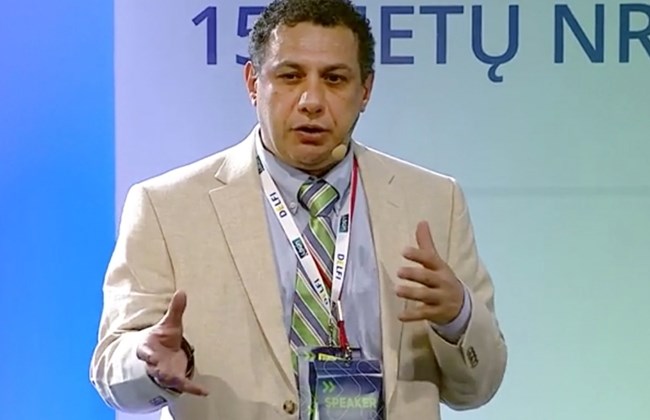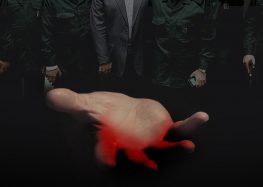Family, US Congress Convince Imprisoned US Permanent Resident to End Hunger Strike in Iran

Nizar Zakka “Under Intense Torture and Pressure”
A Lebanese-born US permanent resident who was sentenced in September 2016 to 10 years imprisonment in Iran ended his hunger strike in Tehran’s Evin Prison on July 27, 2017 after pleas from his family and a call by US Congress for his immediate release.
“At the request of my sons, and because of the support of the American Congress, I’ve decided to stop my hunger strike,” said Nizar Zakka in a statement through his American lawyer Jason Poblete, a copy of which was made available to the Center for Human Rights in Iran (CHRI).
“Thirty-three days of hunger strike, and the support of family, friends, and even strangers, has helped me find protection, help, and guidance that I did not have before,” he added.
Zakka, an information and communications technology consultant based in Washington, DC, was arrested on September 18, 2015 while visiting Tehran on invitation by Vice President for Women and Family Affairs Shahindokht Mowlaverdi to attend a conference on women and sustainable development.
A year later the internet freedom advocate was sentenced to 10 years in prison and fined $402 million by Judge Abolqasem Salavati of Branch 15 of the Revolutionary Court for unspecified “espionage” charges.
“I want to thank again the Congress, the American people, for not forgetting about me and other fellow hostages held captive in Iran,” wrote Zakka. “I also thank fellow hostages and prisoners in Evin prison for showing solidarity with my cause, for treating me as brother, this has truly been a gift, a huge difference in how the Iranian government has treated me. I am innocent of the charges against me. I just want to go home and be reunited with my family and friends.”
Zakka began his hunger strike in late June 2017 to protest his sentence and mistreatment by Iran’s judicial authorities.
“Torture and Pressure”
“Nizar has been very ill,” said Poblete in an interview with CHRI on July 29. “In recent weeks he has been under intense torture and pressure. I cannot get into the details, but the authorities tried to force him to sign a confession in Persian. He resisted and refused because he does not speak Persian.”
“These have been very difficult weeks,” continued Poblete. “But Nizar agreed to end his hunger strike after hearing his son’s voice and the support he received by members of the US House of Representatives.”
“It is a tragedy that in today’s world human beings still treat each other this way,” added Poblete. “Nizar had been invited by the Iranian government. How can they treat a guest that way? I blame the Iranian government, not the Iranian people.”
Two days before Zakka ended his hunger strike, his youngest son testified before the US House Foreign Affairs Committee.
“Governments may have disagreements, but treating people as hostages, a centuries old but uncivilized practice, is not acceptable among civilized nations,” said Omar Zakka in his testimony. “Which is why we have repeatedly urged the unconditional release of my dad.”
“And I do so again today: please let my dad go!” he added. “My dad went to Iran, as he has to other countries in the Middle East, to help the Iranian people learn more about the Internet.”
On July 26, the US Congress passed Resolution 317 calling on Iran to “unconditionally release Siamak Namazi, Baquer Namazi, Karan Vafadari, Afarin Niasari, Nizar Zakka and any other US citizen, legal permanent resident alien, or foreign national being held in Iran.”
Relations between Tehran and Washington sank to a new low after Iran sentenced American Princeton University researcher Xiyue Wang to 10 years in prison, also on unspecified “espionage” charges in mid-July 2017.
A few days later, the White House issued a statement warning Iran that President Donald Trump “is prepared to impose new and serious consequences on Iran unless all unjustly imprisoned American citizens are released and returned.”
At least 12 foreign nationals are currently imprisoned in Iran, including four people with US citizenship: Siamak Namazi, his father Baquer Namazi, Karan Vafadari and Xiyue Wang.
The judiciary’s ongoing imprisonment of dual nationals contradicts President Hassan Rouhani’s repeated calls for expatriates to return to Iran. The growing number of arrests also reflects hardliners’ efforts to prevent the engagement with the West that the administration of President Hassan Rouhani has sought to encourage.






